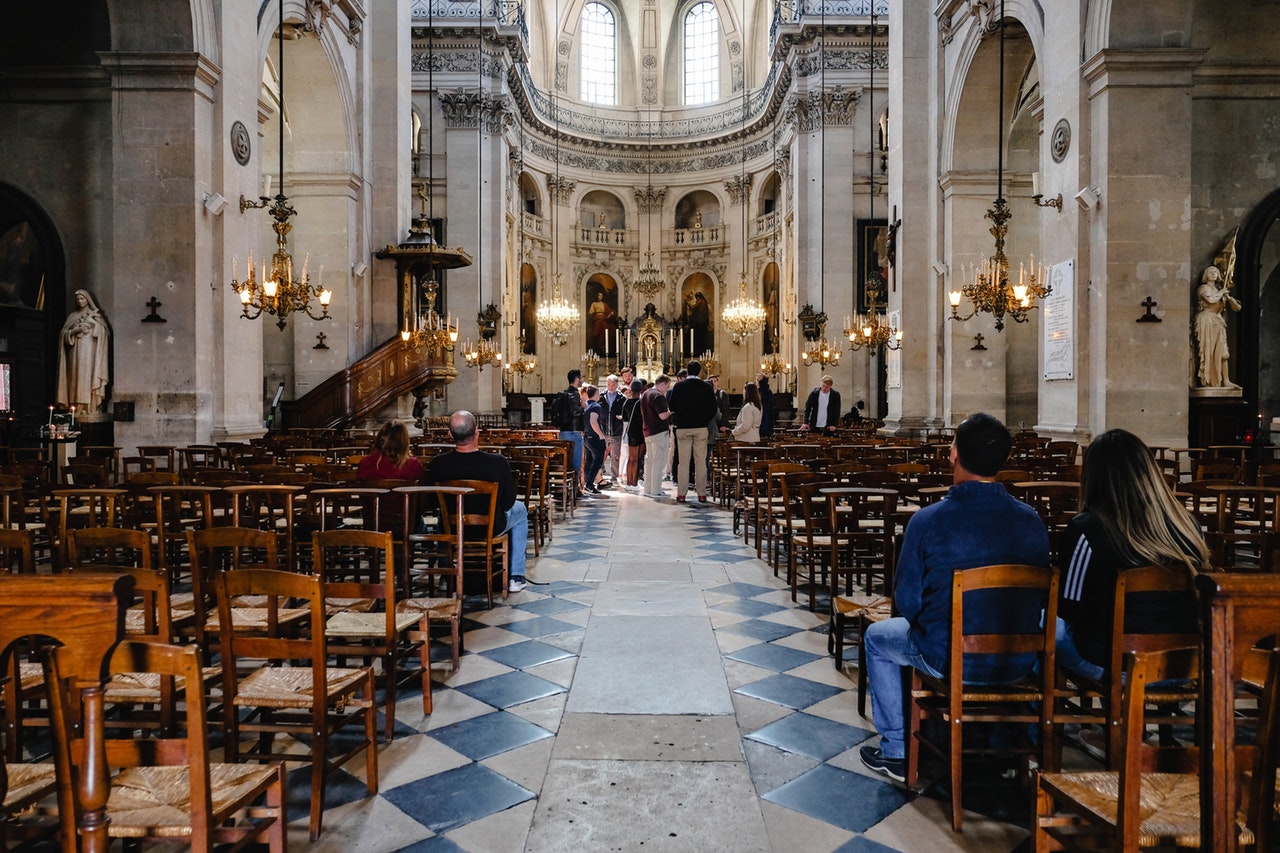Cycle A | Lent | Week 3
REFLECTION
– By Fr Ugo Ikwuka
Archway, London
The Samaritan woman in this Sunday’s Gospel must have thought that Jesus was flirting with her. Indeed, Jesus was interested in her but not in the way she thought. In the encounter that follows, we have the dynamics of conversion and evangelisation at their best. She comes to draw water from the well – stale, stagnant water which stands for all the wrong things that we seek to find satisfaction. To her and to all who similarly find themselves in desperate situation, Jesus makes a radical proposal: seek another “water” and give meaning and a new perspective to your life.
The first key lesson of the encounter is the fundamental principle that God is the one who always seeks us out in love. As she comes to the well, Jesus is already there. That is the primacy of grace. We have always thought of our faith as OUR quest for God, OUR quest for meaning etc. It has always been seen as OUR initiative. But as Jesus once clarified: “It was not you who chose me; it was I who chose you” (John 15:16). So, before she seeks, she has already been found. St. Augustine says that the woman could not thirst for God unless God was already thirsting for her faith. Hence, the primary question is not how do I seek but how do I allow myself to be found. How do I begin to remove the obstructions that conceal me from the view of the God who is always seeking out for me?
The second lesson is that we try in vain to satisfy the ultimate longing of the human heart (which is God) with something less than God. Yes, G. K. Chesterton insightfully noted that “the young man who rings the bell at the brothel is unconsciously looking for God.” One must therefore avoid seeking the experience of the infinite (God) in the finite; drugs, sex, wealth, power, approval etc. St. Augustine wrote “Our hearts are made for you, O God, and can not rest until they rest in you.”

Because all the hunger is ultimately for the infinite good, all these finite goods wear off or run out. In fact, they will all make us frustrated and addicted. As Jesus tells the woman, everyone who drinks of such finite stale and stagnant water will thirst again. But whoever drinks the living water he gives will never thirst again; it will become in him a spring of water welling up to eternal life. Realising this is decisive for conversion.
The one fountain that never runs dry is the divine life which is precisely what Jesus offers the woman. The church communicates this divine life through her teachings and her sacraments. For the life-giving water to flow (to receive the fullness of the divine life), one has to remove the obstacles (resolve the moral dilemmas) in one’s life. Hence, when the woman asked for the living water, Jesus had to call out the anomalies in her life; her disordered relationships, the fact that she had had five husbands, and the man she currently has is not her husband. And she owned up telling Jesus “I see you are a prophet, sir,” in other words, you are right in your observations.
Yet, it is important to note that Jesus did not start with calling out her faults (condemnation) which is the mistake of many evangelisers. Good teachers know that the “sandwich” feedback technique of affirmation (commendation), followed by corrective feedback, and closing with more praise (affirmation) always works best. Thus, Jesus starts first with the offer of grace. With her moral issues resolved, she was ready to receive the fullness of the divine life which she so desperately needs but which she so frantically seeks in all the wrong places.
And this happened so dramatically following her moment of awkwardness as her sinful past was recalled. To save her face, she immediately tried to change the topic so she stutters, “Our fathers (Samaritan forebears) worshipped on this mountain (Gerizim), while you (the Jews) say that Jerusalem is the place where one ought to worship”. This has no connection with the issues at hand but it providentially became the break for Jesus to present her with the one thing she needed to turn her life around – hope.
Ordinarily, her peculiar situation meant that the door of salvation was definitively shut on her since salvation is tied to worshipping in the Jerusalem Temple. She is Samaritan. Moreover, she is a woman, then a public sinner. Put these together and her access to the Temple was virtually impossible. But Jesus declares that such considerations are no longer relevant. None of those barriers will stop her from finding God because what counts now is to welcome the Spirit who can transform the hearts of people by enabling them to experience the ultimate truth of God’s love for them.

Religious places and rituals remain important but only insofar as they lead to this experience of God’s love made manifest in one’s personal union with Christ. This relaxation of the formula for salvation must have sounded too good to be true to the woman and she must have thought that Jesus was just trying to be nice to her following her moment of awkwardness. So, she stutters again, “Well; I know that the Messiah who is the Christ will come some day and perhaps tell us the real situation of things.” And Jesus delivers the cracker: “I am he”. How confounding! And how very extraordinary that a religious outsider and a multiple adulterer became the first to hear this revelation from the mouth of Jesus!
As the encounter draws to conclusion, she puts down her bucket, symbolising the abandonment of her old futile ways of seeking to satisfy her heart with something less than God. Next, she runs into the village and shares her encounter. “Evangelisation is one starving person telling another where to find bread”. The hearts of the Samaritans were changed and they went from being people who did not welcome Jesus to a village that begged him to stay. He did, and more and more of the people came to believe that Jesus is Saviour of the World.
From the people’s response, we see that there are two stages in the conversion process; believing because of what someone told us about Jesus, and believing because we have come personally to know Jesus ourselves. They said to the woman, “It is no longer because of what you said that we believe, for we have heard for ourselves, and we know that this is truly the Saviour of the world.” Ultimately, faith is totally personal.




